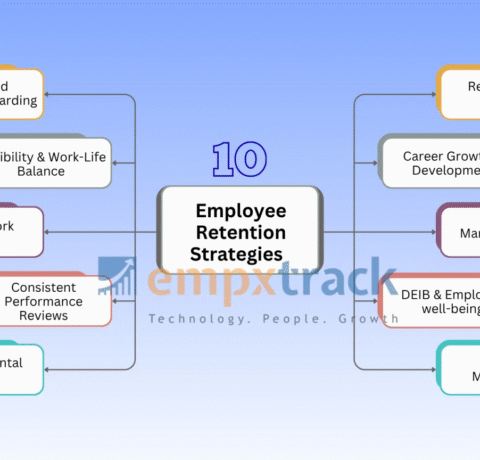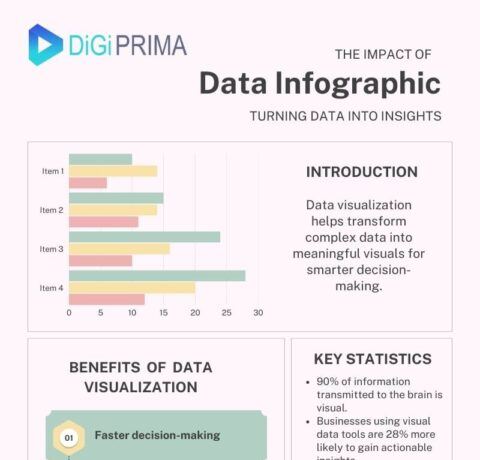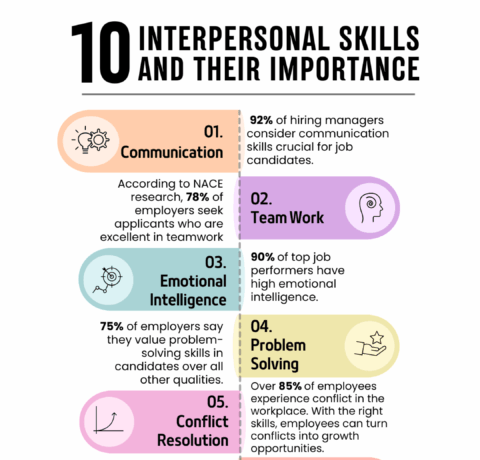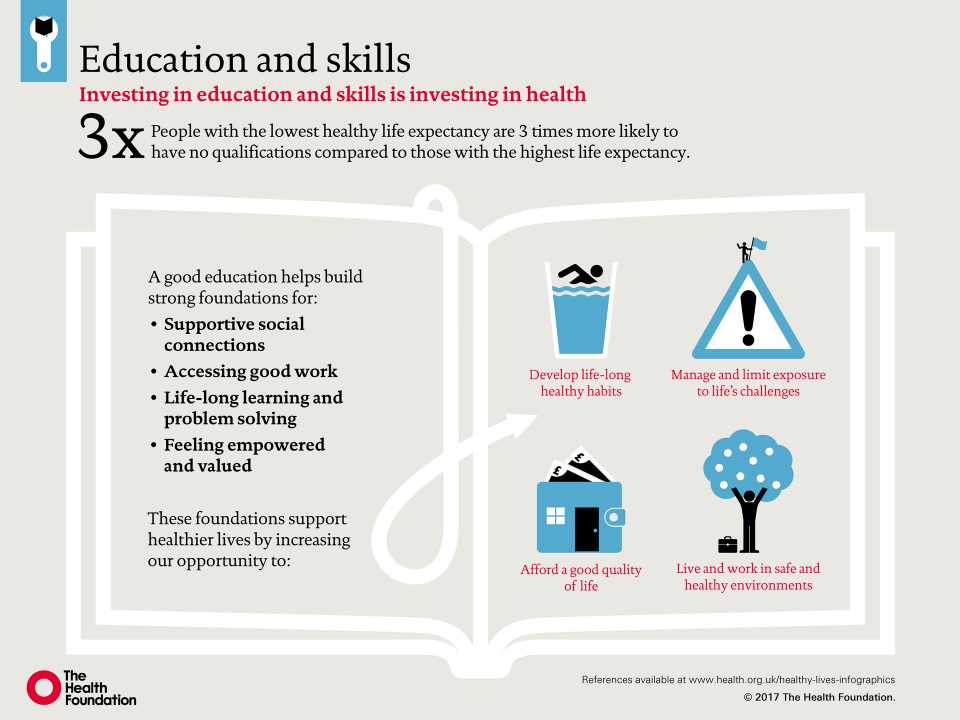How Our Education and Skills Influence Our Health Infographic
The How Our Education and Skills Influence Our Health Infographic illustrates the multiple ways in which our early education can shape the advantages and opportunities we do, or don't, encounter in our adult life, and why investing in education is widely seen as fundamental to building a flourishing society. A rounded education develops us as future citizens and equips us with the abilities and attributes that directly influence our long term health outcomes. Whether in terms of the nature of the work our qualifications enable us to pursue, or the life skills we learn that can help us navigate the challenges life throws at us.
The contribution of education on long term health has been described in terms of:
- 'both potentiating and protective; it can trigger healthier futures, mitigate social stressors, and provide access to employment opportunities and life chances that could protect individuals from later-life disadvantage.'
- 'the single most important modifiable social determinant of health.'
And this isn’t just rhetoric. Studies show that the more educated and skilled you are, the more likely you will report better health even when compared with individuals with similar background characteristics.
Teachers (and all the people who work in schools) are part of the hidden public health workforce. As the infographic shows their endeavours aren’t just about producing GCSE certificates, but are critical to young people:
- developing supportive social connections
- accessing good work
- developing an aptitude for life-long learning and problem solving
- feeling empowered and valued.
These all have direct consequences on their long term health outcomes: whether through increasing someone’s likelihood of being able to afford a good quality life, or through better managing or being less exposed to life’s challenges.







You can adjust your cookie preferences here.